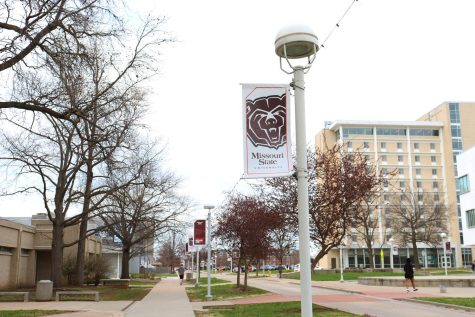Education Divided
Schools can generally be categorized by private or public and both have different benefits
April 25, 2022

Whether it’s a prestigious Ivy League college or a local community college, most schools can be sorted into two categories: private or public. Nixa High School counselor Joy Horgan said the main distinction between private and public colleges is the way each are funded.
“Private colleges are funded by endowment funds, donations and student tuition,” Horgan said. “That is why private colleges are more expensive. Public colleges are funded mostly by state governments. A private college is independent and can set their own rules.”
Hannah McCully, a student at the private College of the Ozarks. She said her college is able to enforce policies that public schools do not, due to the way it is funded.
“College of the Ozarks … is a Christian school that instills in its students values like Christianity, patriotism and a good work ethic,” McCully said. “C of O offers courses that not a lot of other schools have. For instance, Patriotic Education is a class required of all students. Also, we have Christian Worldview classes that are required for all students.”
The College of the Ozarks revolves around Christian values.
“For example, C of O has a zero tolerance policy for alcohol, no matter how old you are or if you are on or off campus,” McCully said. “Same goes for … quite a few other Christian beliefs. … In addition, professors can teach us the Bible.”
While private colleges are not funded through the government, public colleges are. Madalyn Tuning, a 2021 NHS gradaute and student at Missouri State University, said public schools often offer financial aid.
For MSU, its financial opportunities include scholarships and options for student aid including Free Application for Federal Student Aid (FAFSA).
“The government provides FAFSA so you fill out a form online for the government and you get money for college from the government directly,” Tuning said. “MSU also specifically has … scholarships. I have an academic scholarship and I just have to meet a GPA requirement and that’s all I have do semesterly in order to get money for each semester…”
Although costs of tuition varies per school and circumstances of each student, private colleges are generally more expensive. For example, Drury University’s tuition is $31,100 for a full time student — 12 to 17 hours, not including books or housing. Evangel University’s estimated tuition is $35,726, including meal fees and housing. On the other hand, public school fees are generally lower. Missouri State University’s tuition is generally $18,930 for 28 credit hours — fall and spring semesters. Ozarks Technical Community College’s tuition rate ranges from $122.00 to $236.00 per credit hour.
College of the Ozarks is unique because students graduate debt free.
“C of O is nicknamed ‘Hard Work U’ because students work on campus to pay for their tuition,” McCully said. “Students at C of O are guaranteed to graduate debt free. They also offer a summer work program that pays for room and board.”
Although both private and public colleges have opportunities for students, ultimately, private schools are more difficult to get into.
“My private school had a long acceptance process that included applications, reference letters and interviews,” McCully said. “COFO has a [14] percent acceptance rate, whereas Missouri State has an 86 percent acceptance rate.”
Horgan said due to the lower acceptance rates of private schools, they are generally smaller schools.
“This would result in smaller class sizes. The campus itself may be smaller demographically speaking.”







